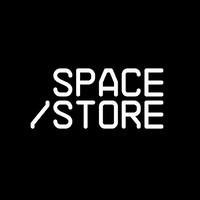Stephen Ringler, founder and CEO of Space Store

Stephen Ringler, Founder & CEO of Space Store, has a vision: to bring space to everyone, everywhere, every day. He longs to see people of all ages inspired by space exploration – its history as well as its future – making space experiences accessible and available to all humans on high streets and around the globe. Thus, he founded Space Store, an experiential retail store and café, which opened its proof of concept shop in Didcot, UK, in June 2019.
Space Store provides digital and in-person space experiences and has received over £200k in seed investment. The company is looking to raise £100k to accelerate its online experience offering. Space Store currently employs 15 staff at 6 FTE rate.
What is your background? What made you decide to become an entrepreneur?
Stephen has over 20 years of experience working in the Space sector as a Pointing Precision Engineer, Programmatic Analyst, and Business & Economic Developer. Accomplishments include developing concept missions for the Jet Propulsion Laboratory, supporting the Ultraviolet Spectrograph Instrument on board NASA’s Juno Mission, and capturing £100m+ in contracts and investment for companies he supports. Previous companies he has held leadership roles include The Aerospace Corporation, Science and Technology Facilities Council, OceanMind, and Satellite Applications Catapult. Stephen also runs a consultancy, Spacetime Development, which provides business development support and engineering services to high-tech companies.
Stephen got the “entrepreneur” bug shortly after he moved from California to Oxfordshire in 2014. He took on the role of Space Cluster Development Manager at Harwell Campus and was surrounded by passionate people starting businesses. The passion rubbed off, and eventually, Stephen launched Spacetime Development which later enabled him to launch Space Store.

Entrepreneurship is all about meeting needs. When one discovers a need that multiple people or organisations have, there is a business potential. Entrepreneurs just step in and meet the need.
How and when did you know your idea was good enough to develop it?
From a survey conducted in 2016, Space Store learnt that 96% of people like space and 92% of people want to have a space experience on Earth. How many things in life have that kind of interest? Space experience supply is incredibly small… basically one has to travel great distances to museums or space centres. Space Store discovered people wanted easier access to space… hence stores in shopping centres and digital access.
What would you say are the top 3 skills that needed to be a successful entrepreneur? Why?
Passion, listening, and drive.
Passion because you have to care deeply about what your business is offering. You need to be able to sell without selling. Within 30 seconds of meeting you, people should want to buy what you are offering.
Listening because you have to understand what customers need. Sometimes what you think they need is not what they need or want. You must constantly listen to adapt to changing demand. This is especially important in these Covid times.
Drive because things will get hard. You will have really great days, but you will have really terrible days. When the going gets tough, you need the drive to keep you going.
What is your favourite part of being an entrepreneur?
It is so satisfying to see people’s needs get met. I find the most joy when you see someone experience space for the first time… whether that is getting into a replica space suit, or blasting off into space on Virtual Reality.
What individual, company or organization inspires you most? Why?
I have multiple inspirations. To name a few, Kellie Peters and Regina Lally at Databasix. Angus Horner, Campus Director at Harwell Campus. Mike Lawton, Founder of Oxford Space Systems. Mark Evans, Founder and CEO of Adaptix. Karyn Buck, CEO of the Learning Ladder. All of these folks started their own companies and embody passion, listening, and drive. They have inspired me to take the plunge.
I’m hugely inspired by the Space Store team who believes in the cause and works extremely hard to bring space experience to everyone, everywhere, every day.
If you had 5 minutes with the above individual/ company/organization, what would you want to ask or discuss?
Lucky for me I have 5 minutes with these people on a regular basis. Questions I ask include: what keeps you going? What drives you? What advice do you have for Space Store at this stage in its development?
What has been your most satisfying or successful moment in business?
When we broke even in February 2020.
What would you say have been some of your mistakes, failures or lessons learned as an entrepreneur?
The biggest lessons that have stuck with me over the past years have been:
1. Start ups have very little time or money to be successful. Therefore you have to surround yourself with team members that are as passionate and driven as you are to make the business work.
2. Marketing is done most effectively internally (versus using marketing consultancies or freelancers) with the people who are passionate about making the business successful.
3. Be very judicious about the investment of your time. Rarely should you invest your time in anything that doesn’t directly generate revenue.
How have you funded your ideas?
Director’s loans, fundraising, and commercial sales.
What is good about being an entrepreneur in Oxfordshire? Bad?
Oxfordshire is teaming with passionate entrepreneurs. These are the people you need to surround yourself with to carry on the good fight. Additionally, there are a number of business support and grant schemes that can help support startups.
If a new entrepreneur or startup came to you looking for entrepreneurship resources, where would you send them?
Harwell Campus and OxLEP.
Any last words of advice?
Do what you love.
Share this
More news



